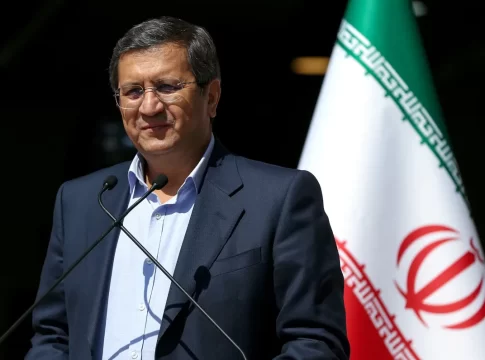In a decisive move, Iran’s parliament voted on Sunday to dismiss Economy Minister Abdolnaser Hemmati, citing his inability to stabilize the national currency and control soaring prices of essential goods. This action comes less than a year after President Masoud Pezeshkian appointed Hemmati to spearhead economic recovery efforts.
Since Hemmati’s appointment, the Iranian rial has seen a dramatic depreciation, losing nearly half its value against the U.S. dollar. As of today, the rial trades at approximately 927,000 to the U.S. dollar, compared to 595,500 last August, according to unofficial currency tracking websites like alanchand.com.
Critics of Hemmati in parliament argued that his economic policies failed to curb inflationary pressures on critical goods, including medicine, food, and housing. They also pointed to his lack of effective measures in the foreign exchange market as a significant concern.
Hemmati had been focused on improving Iran’s international economic standing by prioritizing the lifting of U.S. sanctions and working towards Iran’s removal from the Financial Action Task Force’s blacklist. However, these objectives faced opposition from MPs who advocated for a strategy centered on “neutralizing” sanctions rather than negotiating their removal.
Economic analyst Dr. Farhad Ranjbaran commented, “The removal of Hemmati highlights the internal political struggle over how to confront Iran’s economic challenges amidst ongoing sanctions. This division could lead to further instability if not carefully managed.”
Supporters of Hemmati expressed concern that his dismissal could exacerbate economic volatility. “Iran is still grappling with the repercussions of U.S. sanctions, and a sudden change in economic leadership could undermine efforts to stabilize the markets,” noted an unnamed source within the Iranian economic ministry.
Iran’s economy remains the central issue for its ruling clerics, who fear potential unrest from lower and middle-income groups increasingly frustrated by rising poverty levels. Protests have sporadically erupted since 2017, driven by economic grievances.
The United States’ “maximum pressure” campaign, reinstated by former President Donald Trump, continues to exert significant pressure on Iran’s economy, particularly targeting oil exports, a crucial source of revenue for the country.
The no-confidence vote saw 182 parliament members support the motion against Hemmati, while 89 opposed it. The vote underscores the deep divisions within Iran’s political landscape as the country navigates economic hardships.
As the search for a new economy minister begins, Iran’s leadership faces the daunting task of reconciling differing economic strategies while managing the impacts of international sanctions and domestic discontent.


